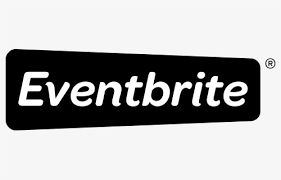A Discussion with Music Attorney Kamal Moo
An interview every new band or musician should read

Gateway Blog category interest
We've discussed pretty extensively the idea that your band, your musical endeavor, should be treated as a business. At least if you are serious about taking it beyond the bedroom or garage, that is. As the leader of your band, the director of your brand, you are effectively the CEO. You have the broad view of who you are, where you want to go and some idea of the steps you need to take to get there.
As the leader of your business, it's important that you take the smart, legal route to attaining your goals and realizing your aspirations. It's important that, when entering into any sort of agreement, whether it be with a record label, artist manager, music publishing company or any other entity that can affect your bottom line in any way, that you do so guided by the legal advice of an entertainment attorney.
We recently ran a story about a new book on navigating your path through the music industry, written by one such attorney, Kamal Moo, and you can check out that story here. We were so enthralled with the content and the way Mr. Moo was able to guide the reader through the ins and outs of the music business that we thought it a good idea to have a conversation with him and publish that conversation here. So, without further ado, here is that conversation.
Hello Kamal, so, as you know, the music business is something that most people don't envision themselves a part of and somehow just end up finding their way to. How did you find your way here? Why entertainment law?
My start in the music business was actually a little different from most attorneys. I attended the University of Southern California and received my undergrad degree in Music Industry, then I received my law degree from Southwestern Law School, where I took mostly entertainment law courses. In 2007, about a year after passing the bar exam, my brother’s two-man band released a screamo rock version of a popular hip hop song on Myspace and things really took off. They were getting over 50,000 plays per day and it was clear they needed a manager, so I stepped in. Soon after, I helped negotiate a record deal for them, and they recorded an album and went on several national tours. Managing my brother’s band was my first real “break” in the music business. In 2010, the band broke up and I decided to start my law practice with a partner. In 2013, my partner left the practice of law altogether and I started my solo practice, The Law Offices of Kamal Moo. I can definitely say that my experience as a manager has helped me become a better music attorney because I’m aware of the realities musicians face in the industry, and I try to draft my contracts to be as practical as possible.
What would you say are some of the biggest legal challenges a band or musician can find themselves facing in what we've come to refer to as the new music industry?
I think there are a lot of opportunities out there for artists right now, especially since recording and releasing music has become accessible to the average person. Artists don’t need to sign with a label in order to be successful, like in the old days. However, if they want to build their careers and brands as independent artists, then that means all the responsibility falls on them to make sure their bases are covered legally. And that means hopefully finding a solid attorney who can draft the proper agreements and help them navigate the industry.
When would you say is the right time for an artist to seek out legal representation? Should they do so on a case by case basis or try to retain representation on a more formal basis if they can afford it?
If you are ever in a situation where you are offered a contract that affects your legal rights, you should always seek out a knowledgeable attorney. Also, even if you’re a new indie artist who doesn’t have much money, it makes sense to try and find a good lawyer who is willing to work with you. I work with many indie artists and try to quote prices that are affordable for them. So, maybe start out with an attorney on a contract-by-contract basis, and then you can move to a retainer-based representation if and when it’s needed.
You recently wrote a book that reads a bit like one of those "For Dummies" manuals, which, in my opinion is a good thing considering the average attention span of most of the target demographic and their need to digest information quickly and easily. Social media and mass consumption culture have changed us from a people willing to read, study and learn, into scrollers, looking for instant gratification and quick precise answers to our questions. Did you find it a challenge to break down what is an extremely complicated business into something everyone can understand?
Not at all. Truthfully, I feel like half my job is explaining the law to my clients. And, I’m more than happy to do so, because I want my clients to understand what they’re getting themselves into. Many times, they’ll send me an agreement and ask me to translate it into plain English for them. Over the years, I’ve gotten pretty good at distilling those complex agreements into straightforward memos that almost anyone can understand. So, much of the information in the book is based on the breakdowns I’ve done hundreds of times for clients.
I found it interesting that you literally jumped right in the deep end with copyrights at the beginning of the book rather than burying it at the end. Was that sort of one of those "get the tough stuff out of the way first" sort of things? Not that the book is a tough read, actually quite the opposite. It seems you intentionally wrote this book in as straightforward a way as possible.
At its core, the music business exists mainly because of copyright law and the ability it grants you to own the music you create. In fact, in law school we all had to take the copyright course as a prerequisite before we were allowed to take any other entertainment law classes. In my opinion, if you understand the basics of copyright law, then most of the music contracts you’ll be presented with will make much more sense. So, I figured an explanation of copyright law was a good place to start and I tried to make it as simple (and painless) as possible.
You spent some time on the road touring and tour managing, what would you consider to be some of the main challenges a touring band can expect to face from a legal perspective.
Touring can be tough, and pretty repetitive: you drive to the venue, load in, soundcheck, wait around, play the show, sell merch and sign autographs, load out, and repeat for several weeks. From a practical standpoint, I would recommend that a touring band get proper insurance. You never know if a concertgoer who gets injured at your show will try to sue you after the fact. So, having proper insurance coverage is important. The policies aren’t usually very expensive – as a manager I’ve had to secure coverage for my various clients.
As someone who has been an agent in the music business for over 30 years now, I have developed the opinion that bands or musicians should do everything they can to take charge of their own careers, network heavily and learn everything that they can about the business prior to building out a team. I feel like as the face of their brand, they need to develop that 30,000 foot view of every aspect of their career and the possible challenges they may face. As an attorney, I'm curious of your viewpoint on team building for a band or musician. At what point in their career do you feel they should bring on team members like manager, business manager, agent, publicist and of course, attorney?
This is actually a topic I cover in the book. I always say that you’ll add people to your team when you need them. For example, you’ll need a manager once there is actually something to manage. Although it does happen from time to time, it’s not common for a manager to just pluck someone out of obscurity and make them a star. Usually, you will need to have some sort of spark or momentum going as an artist so that a manager can help you build on it. For example, when my brother’s band was getting popular on Myspace and labels started making inquiries, that was when a manager was necessary. So, I always tell clients that they should add these people to their team when the time is right and there is a need for their services.
What is something that most musicians/bands don't know that you feel they really should know?
I think they should be very mindful of their expenses. For example, when a label pays an advance to a band as part of a record deal, the band should be aware that they won’t usually get any more money or receive record royalties until they have paid back (a/k/a “recouped”) their advance. The band will need to live on their advance while they record their album, so it’s important to budget that money wisely for living expenses like food, rent, etc. The same is true for touring. It may sound like the band is making a lot of money from playing shows, but after they subtract expenses such as agent and manager commissions, gas, hotel, equipment rental, and merch, the resulting “net profit” can be pretty small, unless the band sticks to a sensible budget.
So let's say I'm in a band. We've just been offered a recording contract from an indie label. They've sent me a copy of the boilerplate agreement and I realize that I don't understand a lot of the terms and legalese. My brother-in-law is an attorney and has spent years defending drunk drivers, helping divorced fathers with custody issues or negotiating corporate mergers and acquisitions. I figure he can help me understand the agreement and possibly negotiate better terms for me. Why am I wrong?
This is a great question. As attorneys, we focus on different areas of law and that means we are not necessarily competent in every single area (and there are hundreds of them). So, even if your brother-in-law is a terrific criminal defense or family law attorney, that doesn’t mean he’s necessarily qualified to represent you in negotiations with a record label. Or, as I like to say, you wouldn’t go to a foot doctor for heart surgery, would you?
Well that about covers it for now, would love to have you consider a monthly column or something along those lines. Where can people find you and your new book? Any parting words for bands or musicians who may be just getting started?
Awesome, thanks for reaching out and asking these questions. I always like to pass along knowledge to artists when I can.
You can find links to the eBook version of “The Straightforward Guide to the Music Biz” by going to my author site, www.kamalandrew.com. Or, if you’re like me and enjoy a good old-fashioned paperback copy, that’s also available on Amazon.
The last thing I’ll say to musicians who are just starting out is that it’s extremely important to educate yourself. The music industry can get tricky and a lot of it isn’t very intuitive. So, you’ll be in a much better position to achieve success if you take the time to learn about the business. You don’t need to become an expert, but it will serve you well to at least get a firm grasp of the fundamentals.
Thanks a bunch Kamal, this has been very enlightening and I hope helpful for some of the musicians out there reading it.
More Photos
More from Gateway Blog

Gateway Blog
Music Biz Basics
A 101 Type Guide to the Basics of the Music Business with Music Business Attorney Kamal Moo

Gateway Blog
Music Business Conferences in 2021 You Should Know About
Check out a mixture of live and virtual music industry conferences this year.


Gateway Blog
Eventbrite Unveils 2020 "Inside Look Report,"
A Comprehensive Study on Human Connection Amidst a World of Online Experiences

Gateway Blog
When and why does your band need a manager?
How and when to choose the most important member of your team





 Newsletter Signup
Newsletter Signup